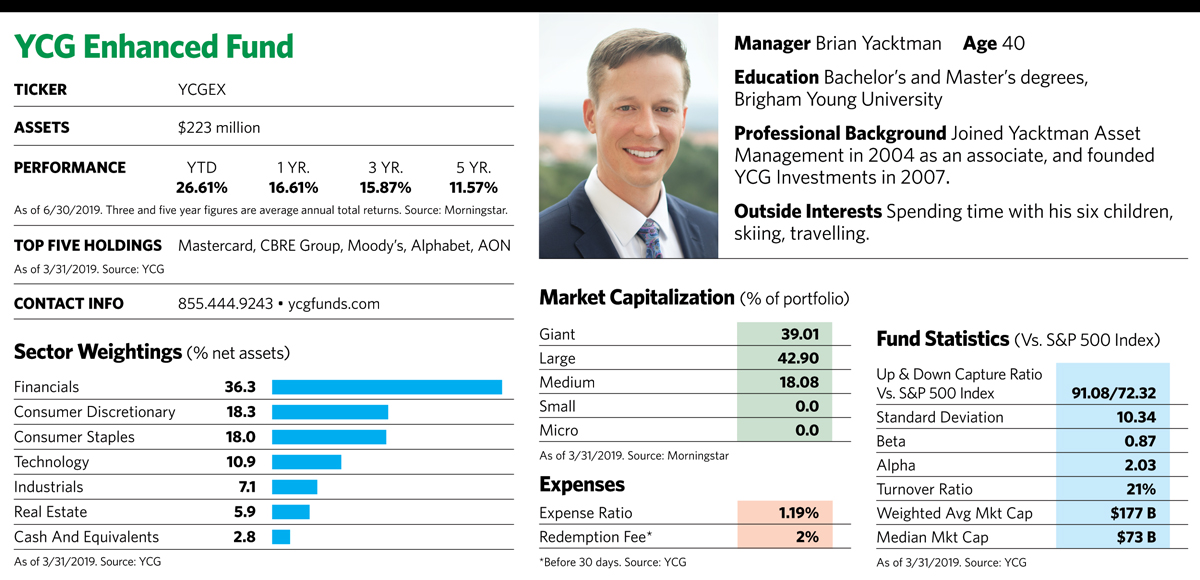Conservative Options Strategy
The fund also distinguishes itself through its use of cash-secured put options on the buy side and covered call strategies for sales. Both strategies use no leverage and are designed as conservative trades to reduce risk and generate premium income. Yacktman says that in addition to that income, the strategy also offers tax advantages over simply holding the underlying securities.
A cash-secured put strategy is used by those who intend to own a stock at a target price lower than the current market price. In this strategy, the investor sells a put option to another investor but also has enough cash to cover the amount that would be needed to buy the stock if that put were exercised, or assigned, to the put seller. In a favorable outcome, the put seller/option writer keeps the premium he or she makes off the put sale and acquires the stock at the contract’s price. If the stock goes up, the writer keeps the cash from the put, which expires worthless. But if the underlying security falls to a price lower than the exercise price of the put option, the option will likely be exercised and the fund would be obligated to purchase the stock at more than its market value.
On the sale side, the managers may elect to sell covered call options against stocks already in the portfolio. If those stocks fail to rise to the strike price, the fund pockets the option premium and keeps the stock. The main risk here is when the stock soars past the strike price, forcing the fund to accept a lower-than-market price for the shares at exercise.
Although the fund has the word “enhanced” in its name to underscore its use of options, Yacktman says it has done so sparingly over the last few years because market volatility has been so low. At such times, option premiums are relatively paltry, and protective mechanisms such as covered calls and cash secured puts aren’t as necessary as they are when the market is more volatile.
“We’re not one of those funds that uses options on a certain percent of the portfolio all the time,” he says. “We only do so if it objectively makes sense.” In late June, there were cash-secured puts on only about 5% of the portfolio and there were no covered call positions.
Mining Human Behavior
As for stock holdings, Yacktman strongly believes that a repeatable investment strategy is grounded in taking advantage of behavioral tendencies. “The average investor’s get-rich-quick mentality and overconfidence in selecting the stocks they think will double quickly leads to two consistent types of mispricings,” he says. “The first is a consistent underpricing of high-quality, predictable stocks. The second is a tendency to overdiscount temporary macroeconomic and operational issues because investors are very short-term oriented.”
The fund focuses on the high-quality stocks of competitive global companies with strong, dominant franchises and the ability to raise prices under a variety of economic scenarios. These names must produce consistent cash flow and have the ability to remain robust under a variety of economic scenarios. He also likes to see high levels of executive stock ownership and conservative balance sheets.









